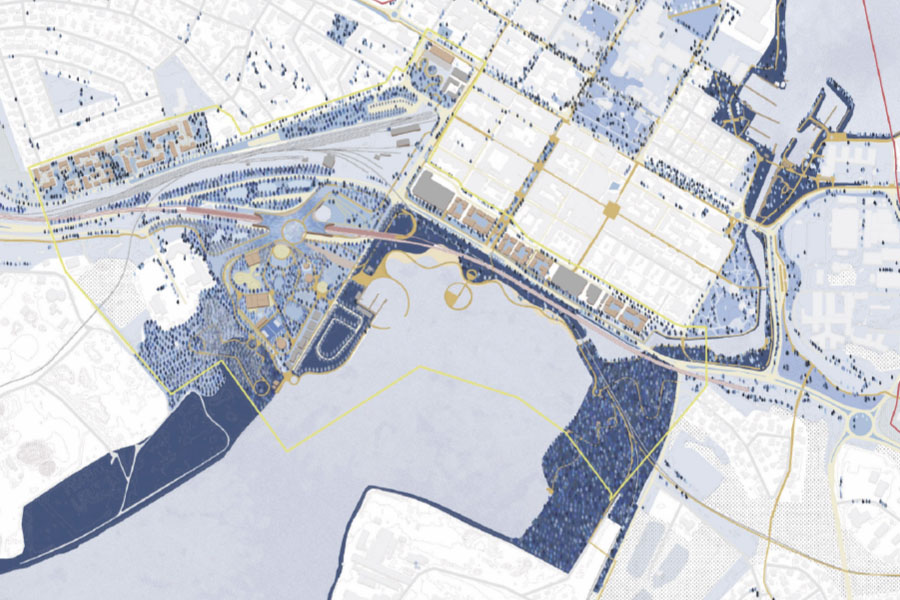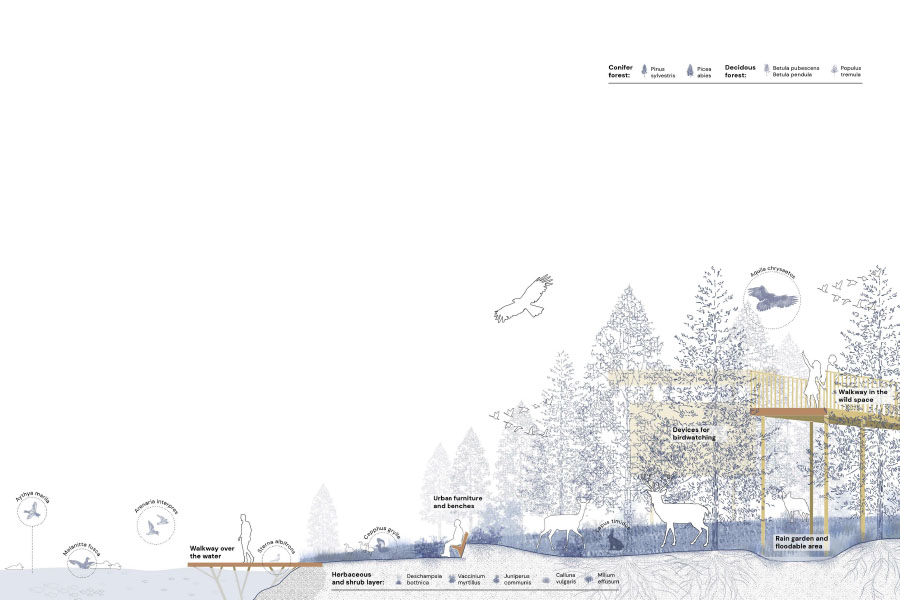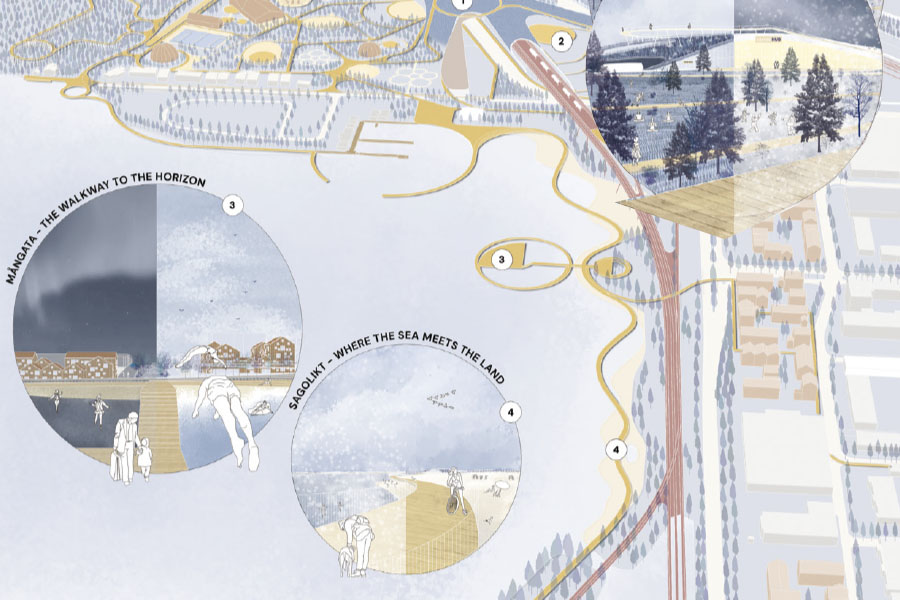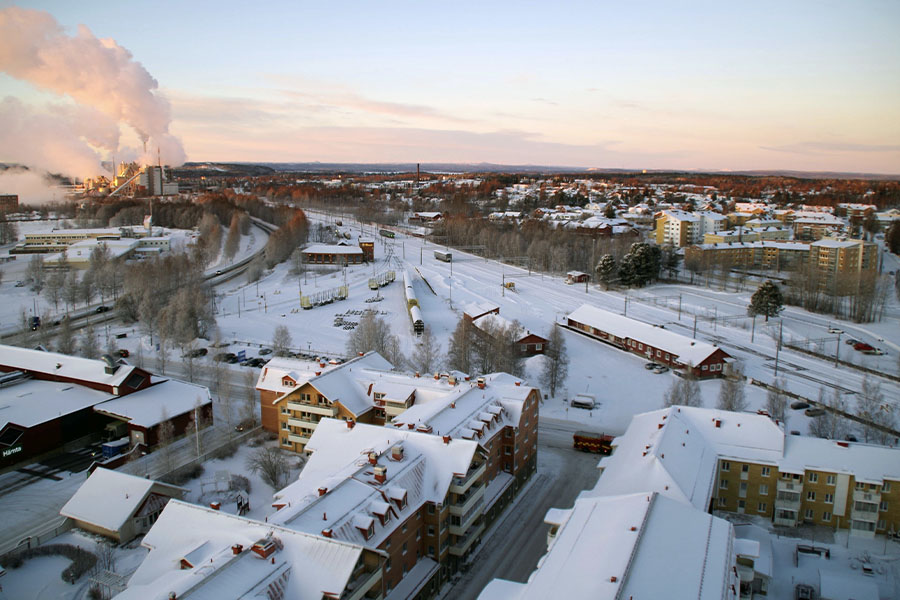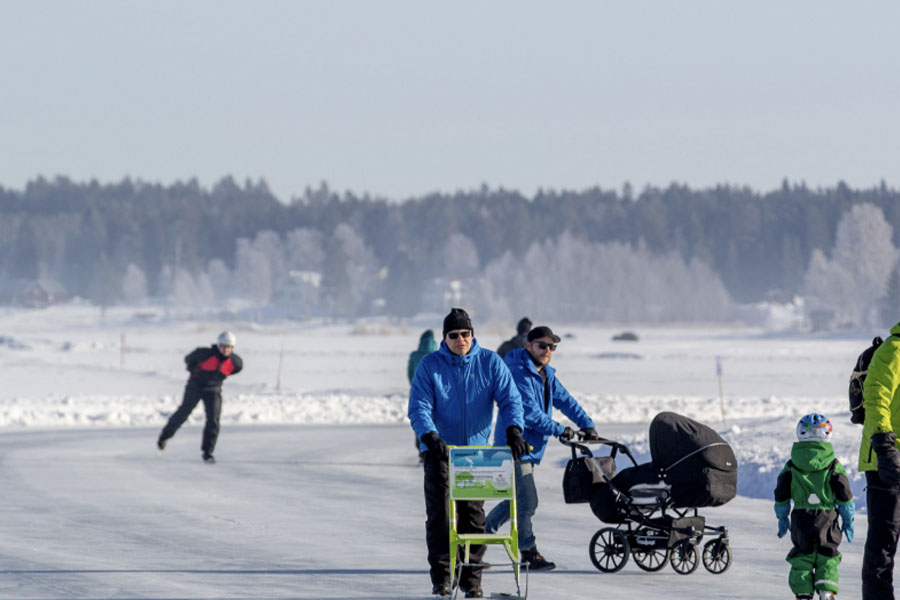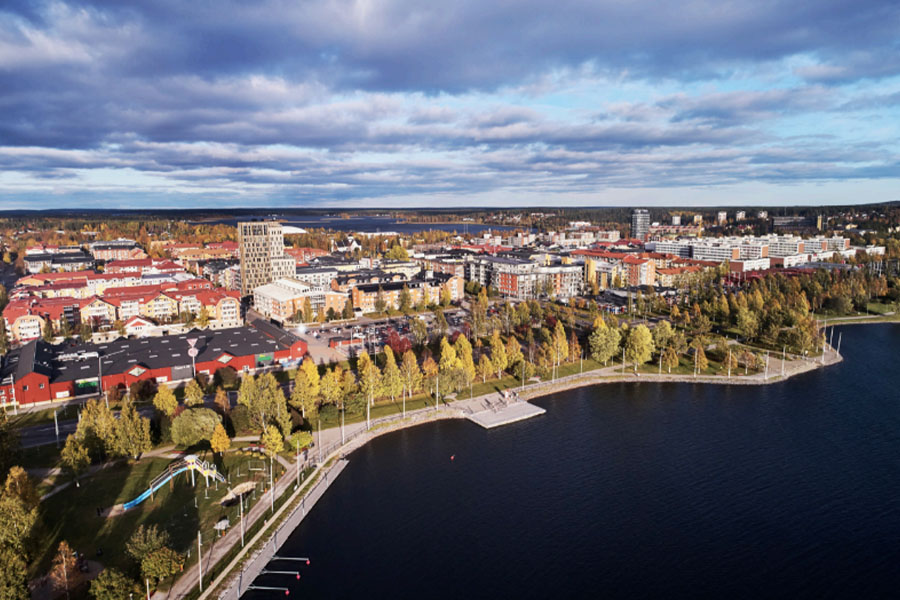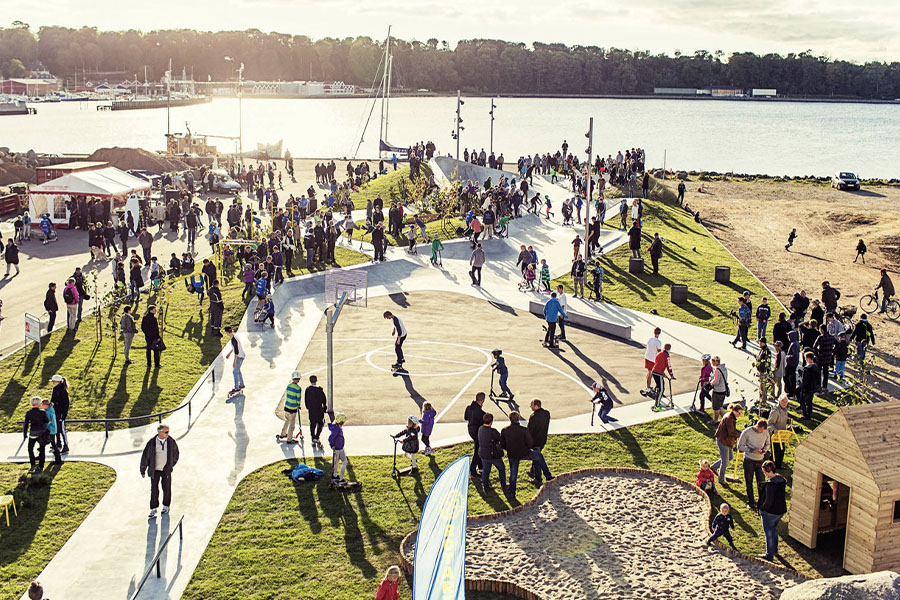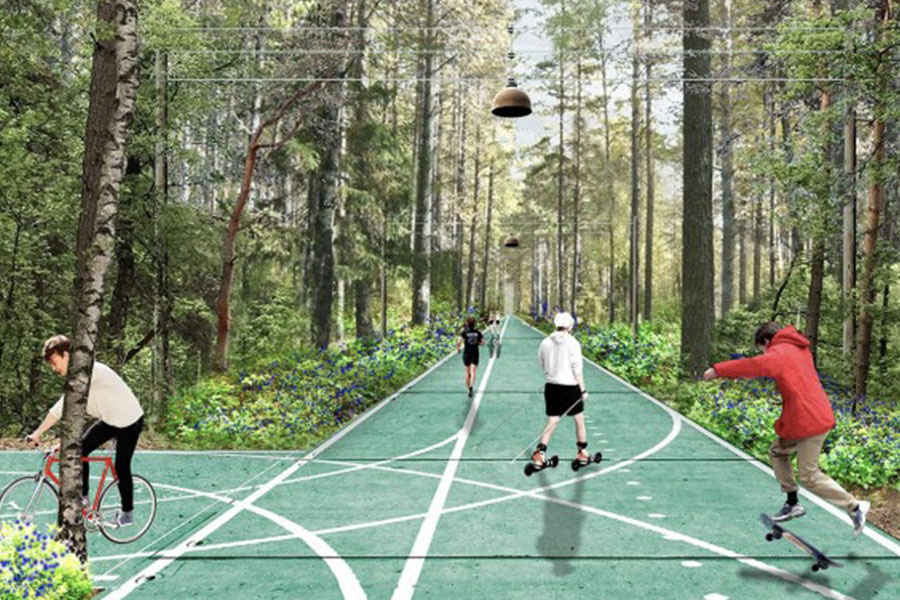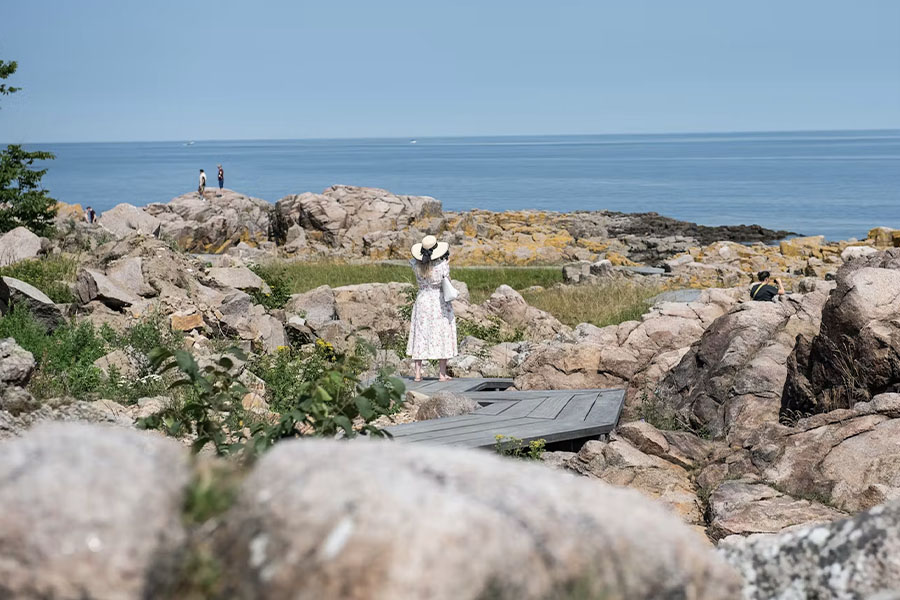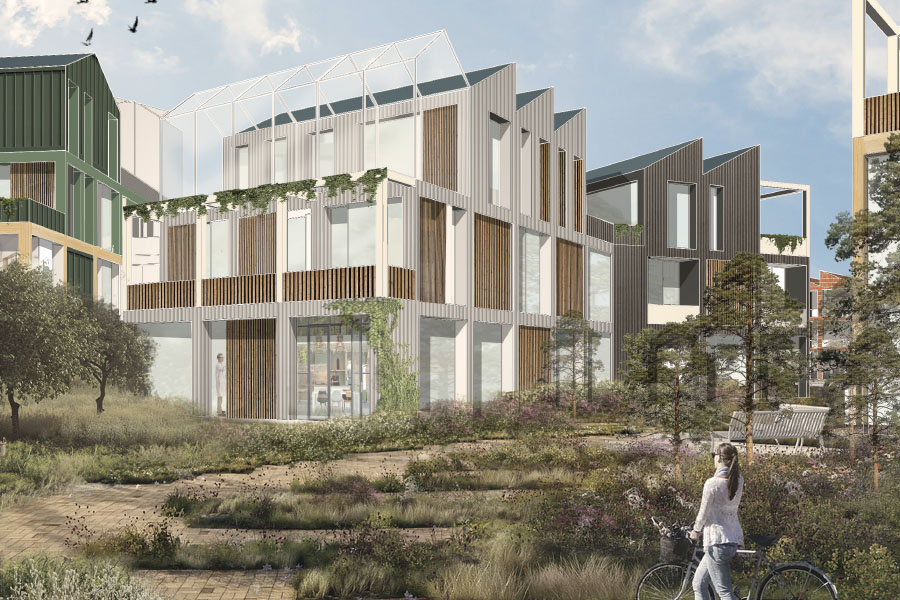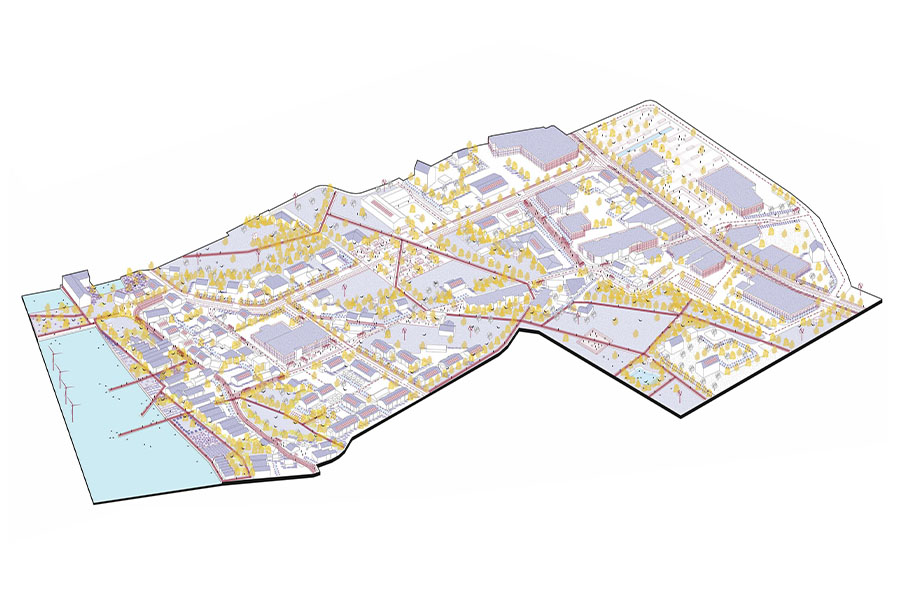Lagom
Piteå (SE) - Special Mention

TEAM PORTRAIT
VIDEO (by the team)
INTERVIEW
Click on the images to enlarge
1. How do you define the main issue of your project in relation with the theme “Living Cities Imagining architecture taking care of the milieus”? And in which way do you think your project can contribute to an ecological and/or social evolution?
The project Lagom is built on the idea of care. The proposal aims to enhance the ecological system of Piteå by designing a biophilic infrastructure capable of nurturing the soil, the air, and various forms of life, including vegetation, animals, and our species, humans. Our vision serves as the missing piece, a valuable bridge to reconnect the residents of the city centre with nature and biodiversity.
2. How did the issues of your design and the questions raised by the site mutation meet?
The project tackles the challenge of linking the seaside with the historical heart of the city, along with the future interchange hub, based on the foundation of sustainable mobility. Lagom addresses the urgent need to create a visual and formal connection with the sea. The new coastal area is designed to become an attractive green oasis for various activities. An immersive space, intended to be enjoyed year-round, from the extended summer days to the long Nordic nights.
PROJECT:



We are interested in the issues of urban regeneration in fragile areas, with a focus on nature-based solutions. We strongly believe in the importance of the coexistence of different inhabitants, human and non-human. Our references were various designers who in the last decades approached these themes, such as Effekt Architects, SLA, White Arkitekter, and Lola Landscape.
SITE:



Our project identified various steps for the transformation. The first step will be the realisation of rain gardens that collect rainfall and snow, and the planting of trees to provide more comfortable spaces. The new buildings will be built in phases, in line with Piteå’s economic growth needs, using prefabricated wood, to lower environmental impact thanks to the use of local materials. Solar panels and wind turbines will be installed to create small renewable energy communities.
REFERENCES:



The three founders of the team have been colleagues and friends since university, while the others met through the years in various design ateliers and research activities where they shared common interests in urban regeneration with a focus on landscape and nature-based solutions.
6. How could this prize help you in your professional career?
Europan is a huge opportunity that helps young architects to test ideas and to create networks. For some of us, it will help in introducing ourselves to architectural bureaus, while for others it will push academic researches in the direction of the ecological issues addressed by the competition.
TEAM IDENTITY
Legal status:
Team name: Collettivo Selvaticus
Average age of the associates: 25-33 years old
Has your team, together or separately, already conceived or implemented some projects and/or won any competition? if so, which ones?
Some of the team members are still students, some others are architects and post-doc researchers. Considering the Europan competition, the three founders also got a special mention in Akrehamn (NO) in the current edition with the project entitled “Symbiotic Landscape”. Moreover, one of the founders - Silvia Lanteri - was also part of the “Making Room(s)” team that was selected as runner-up in Cuneo (IT) by Europan 14.
WORKS:



